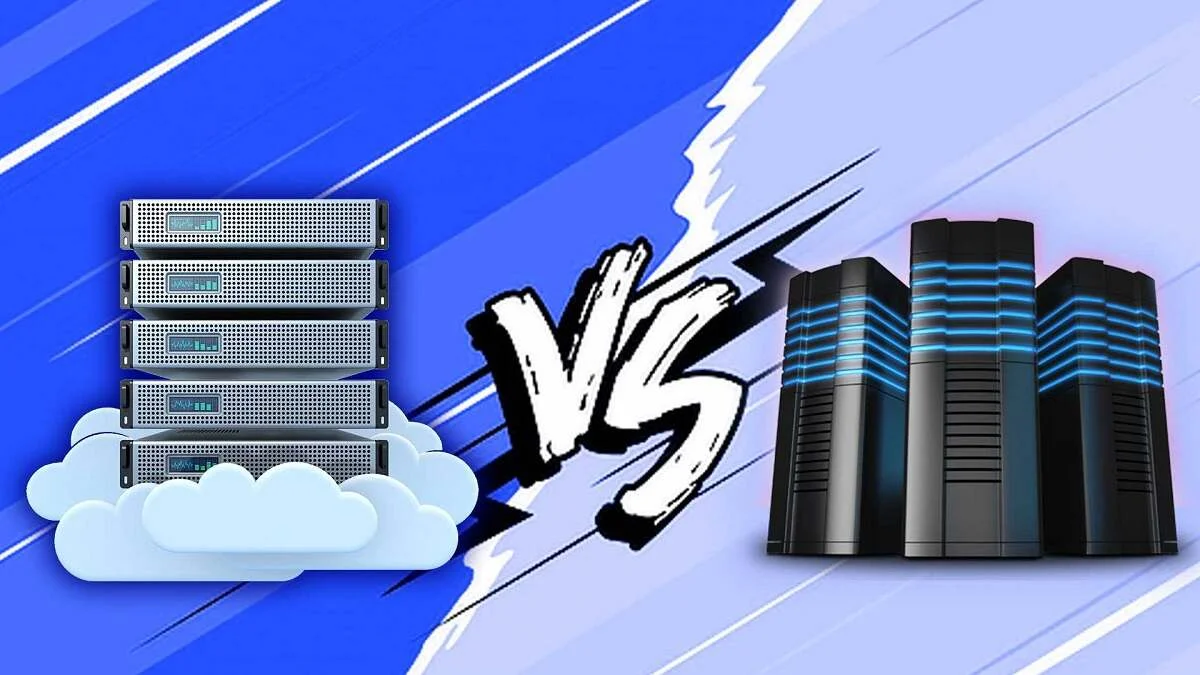What is better: deploying your own server or renting one?

One of the first questions facing network project developers is the choice of where to host it: on their own or a rented virtual server. However, the dilemma between owning a real server—purchased or rented—and using a VPS/VDS is quite common among all levels of network users.
In this article, we'll explore the topic in detail, answer the most frequently asked questions, and provide all the pros and cons. We're confident that after reading this, everyone will be able to make the right decision, tailored to their specific product and situation.
Where to Start
It's not for nothing that we wrote above: "...the right decision, tailored to their specific product and situation." Because there's no one-size-fits-all answer. Many years ago, when cloud technologies weren't as developed, the difference between owning a server and a VPS/VDS was much more significant.
The reasons were as follows:
low internet speed—by launching your own server, you could create a local network that would provide good speeds within it and what you could get outside of it;
Server hardware performance—maintaining a functioning VPS/VDS was more difficult and expensive;
the imperfections of virtualization technologies—hypervisors couldn't provide today's convenience and functionality.
Today, all these difficulties are a thing of the past; VPS provide the capacity necessary for most projects, and network speeds have become sufficient for user access from virtually any populated area on the planet. Ultimately, the primary consideration in choosing a VPS/VDS remains the project's needs.
What's the fundamental difference?
Today, a VPS/VDS is a fully-fledged server, offering virtually the same capabilities. You can install any operating system and software, reboot it, shut it down, connect remotely with root access, and administer it: to the user, there will be no external difference—the difference is internal.
Definitions
VPS/VDS are dedicated virtual resources, part of a physical server. Unlike hosting, all the features specified in the plan, such as RAM, number of cores, and disk space, are guaranteed to be available to the tenant, regardless of whether they use them.
A private server is a physical server, either owned or rented, located in a data center or a private server room. In this case, all resources are owned by the owner, and performance depends solely on the configuration.
Security
VPS/VDS: Basic security is provided by the provider, but from a technical standpoint, creating similar conditions in a private server room would be very difficult. Data centers employ a complex combination of physical and software security measures capable of withstanding almost any eventuality:
Physical security: Comprehensive protection against unauthorized access, beginning at the perimeter level of adjacent areas, including engineering;
Fire safety: Modern cooling and power supply systems, gas fire suppression systems, and continuous monitoring;
Energy security: Multiple separate power sources, including local generators capable of maintaining the required power level for extended periods, and uninterruptible power supplies (UPS) required for generator startup.
In addition, multiple independent telecom input routes and powerful protection systems against DDoS attacks and malware are typically provided.
A private server in a private server room—it's up to the owner to implement the necessary security measures. However, this option has the advantage of being an isolated solution that can be used exclusively within the company's network.
Administration
VPS/VDS—requires basic knowledge; most providers allow you to select and install operating systems and software directly in graphical mode, using mouse control.
A private server—requires advanced knowledge for management and administration. While a server rented in a data center offers some automation tools, one installed in a private server room is the owner's sole responsibility.
The most important differences from a user perspective

Parameters that often play the most important role in the choice.
Payment plan
VPS/VDS versus renting your own server in a data center means no large one-time costs: you don't need to purchase expensive equipment; simply select and pay for a suitable tariff plan for the desired period.
Purchasing your own server means significant one-time costs, but no recurring expenses during the warranty period unless modifications are required, and you don't need to hire additional staff for maintenance and administration.
Scalability
VPS/VDS can be scaled in minutes and clicks by ordering additional capacity from the provider.
Having your own server requires physical configuration changes, which the provider can handle if the server is rented, or you'll have to purchase and replace components yourself.
Which is better?
Neither. These are solutions suited to different tasks, so your choice should be based solely on your needs and budget. Purchasing or even renting an expensive, powerful, in-house server for a small project is pointless, and a VPS/VDS may not be suitable for highly specialized or resource-intensive tasks.
The optimal choice is the one that best suits your needs. For example, if you need to store data within your company's boundaries, your only option is a dedicated server in a private server room. However, if you need to host a growing project whose scale is uncertain or whose terms and conditions will frequently change, a VPS/VDS is a good choice, as they scale quickly and easily.
You can purchase a reliable VPS/VDS or dedicated server on our website.